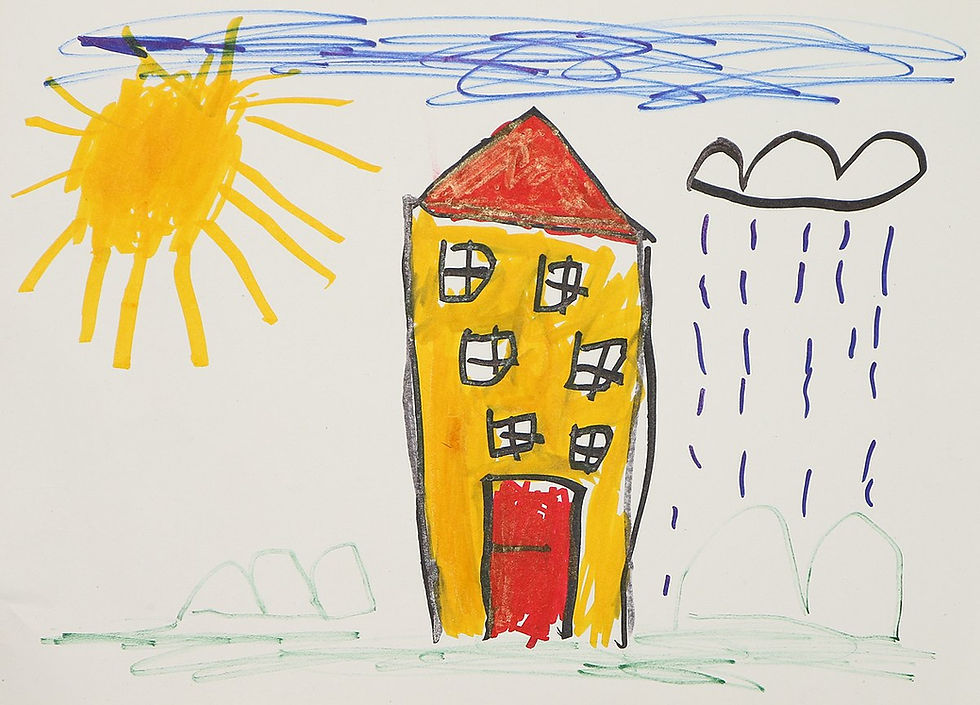13th Sunday OT C ~ "Home" ~ Susan McGurgan
- susan mcgurgan

- Jun 20, 2022
- 3 min read

Foxes have dens
and birds of the sky have nests, but the Son of Man has
nowhere to rest his head.
For many people,
home is a place of grounding,
a place of growth,
discovery,
joy.
For these lucky people,
home is a source of hospitality and support,
a refuge
built upon an unshakable foundation of love.
For many others, though,
home is risky and fraught with danger—
a place of pain and uncertainty
where nothing and no one can be trusted—
a place where the ground shifts and tilts and sometimes
erodes completely
leaving no safe path.
For vast and growing numbers of people,
this fundamental human experience of “home”
is missing altogether.
They are home-less,
with no place to rest their heads.
As Miroslov Volf notes,
we live in a crisis of home;
a time of massive uprooting,
a time of migration, exile, and wandering.
It is a time of fractured households
and ruptured social structures.
It feels like a season of displacement and dislocation.
Rich farmland is consumed by suburban tract homes
and upscale shopping centers.
Wildlife habitats and local ecosystems are destroyed.
Ancient underground aquifers deplete,
their waters poured out to keep desert resorts green.
Small towns depopulate,
and fall into shadows.
Our wealthiest cities have massive, unhoused populations
living in underpasses
and sleeping in shelters and park benches.
Refugees from war, famine, political and economic oppression
leave home,
carrying their possessions on their backs,
searching for sanctuary and peace.
What do we see and hear
when we proclaim this Gospel passage?
Do we remember the homeless Jesus--
the baby born on a journey,
swaddled in a stable,
a child refugee fleeing with his parents to Egypt?
Do we remember the homeless Jesus--
a man who left the security of home
to retreat into the wilderness,
to walk along the margins,
to stand in the borderlands and mingle with strangers?
Do we remember the homeless Jesus—
the man who called people
to leave their homes and follow him;
who said, “let the dead bury their dead and not look back”?
Do we remember the homeless Jesus?
We encounter him every time
we place a nativity set on our mantle,
every time we read Scripture,
every time we receive Him in the Eucharist.
What does it mean to remember that Jesus was homeless?
For many of us,
if we think of it at all,
it is an inconvenient memory—
a memory we prefer to ignore.
If we remember,
then we must see the world differently—
open our eyes to the legion
who have no secure place to lay their heads;
to ask “who benefits?”
when gentrification removes affordable housing;
to practice radical hospitality
when we prefer to stay safe behind our fences and gates.
The memory of a homeless Jesus
invites us to care for our common home,
the earth,
which was entrusted to us as guardians and stewards.
The memory of a homeless Jesus
reminds us that we are people
whose spiritual heritage
was born in the crucible of exile and persecution;
and our history is a story of displacement,
insecurity,
journey,
and risk.
The memory of a homeless Jesus
reminds us that life issues
are broad and deep and challenging,
extending far beyond birth.
For those who live in exile;
for those whose homes are places of threat and danger;
for those who have no home,
no safe haven,
no place to lay their head,
a homeless Jesus is a beacon of hope and solidarity,
lighting a sure path toward the home of God.
Miroslav Volf, Ryan McAnnally-Linz, The Home of God: A Brief Story of Everything, Baker Publishing Group, to be published, September 2022. In interviews and pre-publication information, Volf speaks eloquently about the “crisis of home.”
Image: https://commons.wikimedia.org/wiki/File:Wc_yellow_house_child_drawing.jpg">Øyvind Holmstad</a>, <a href="https://creativecommons.org/licenses/by-sa/4.0">CC BY-SA 4.0</a>, via Wikimedia Commons. Øyvind Holmstad





Comments